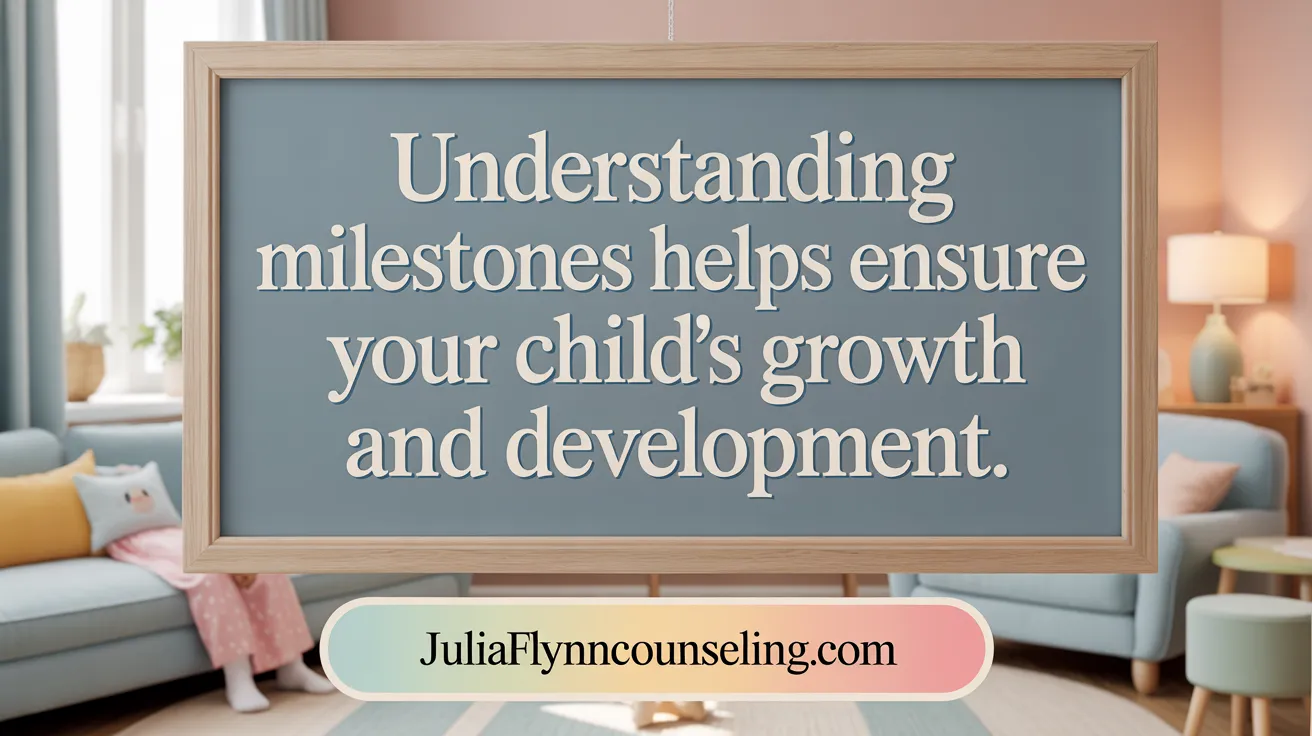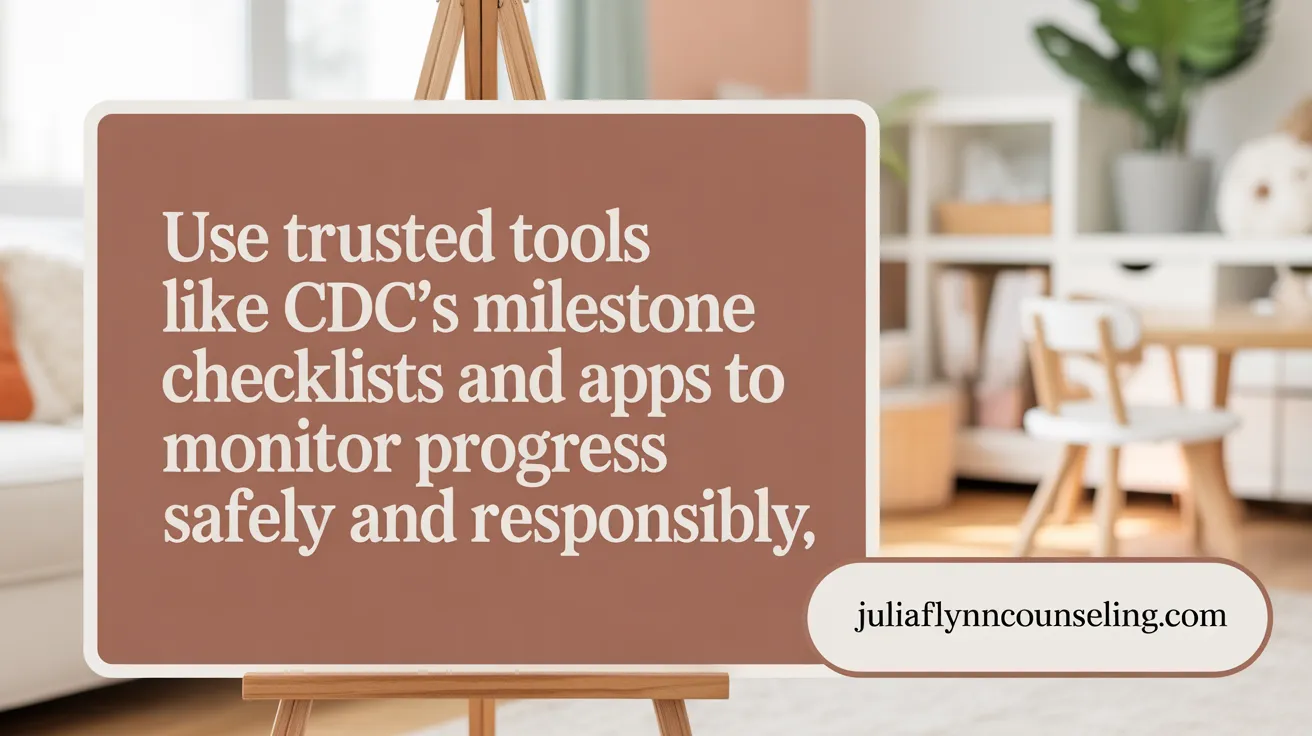Understanding the Importance of Developmental Milestones
Developmental milestones are key indicators of how toddlers grow, learn, and interact with the world around them. Monitoring these milestones empowers parents, caregivers, and healthcare providers to ensure children are developing healthily and to identify early any delays that might need attention. This article explores the significance of developmental milestones, ways to monitor and assess toddler progress, typical developmental trajectories, warning signs of delays, and resources available for supporting healthy development.
What Are Developmental Milestones and Why Do They Matter?

What are developmental milestones and why are they important for toddlers?
Developmental milestones are specific skills and behaviors that most children typically achieve by certain ages, covering areas such as motor skills, language, social-emotional development, and cognition. These milestones serve as important markers that help caregivers and healthcare providers monitor a child's growth and identify any potential delays early on.
Recognizing these milestones allows for timely intervention, which can significantly improve long-term developmental outcomes if delays are detected. When children reach milestones like smiling, babbling, or taking their first steps within expected age ranges, parents and doctors gain reassurance about healthy development.
Tools like milestone checklists and the CDC’s Milestone Tracker App are practical resources for parents to keep track of their child’s progress. These tools involve observing how children play, learn, talk, and move. If milestones aren't met on time, early screening can reveal developmental delays, enabling early support and therapy.
In summary, understanding and consistently monitoring developmental milestones is crucial. It ensures that children are developing properly across key areas, and if there are concerns, they can be addressed promptly to support the child's growth and future success.
Monitoring and Assessing Toddler Development: Methods and Tools
 How should developmental milestones be monitored in young children?
How should developmental milestones be monitored in young children?
Developmental milestones are primarily monitored through continuous, informal surveillance involving parents, caregivers, teachers, and healthcare providers. This ongoing process focuses on observing a child's progress in areas such as playing, learning, speaking, behaving, and moving. Caregivers are encouraged to use simple, structured checklists like the CDC’s "Learn the Signs. Act Early." milestone checklists, which outline age-specific skills children should typically attain. These checklists help caregivers document and track developmental achievements in a straightforward way.
In addition to informal observation, formal developmental screening tools are used at designated checkups. These brief, standardized assessments include questionnaires like the Ages and Stages Questionnaire (ASQ), which are completed by parents or professionals to identify potential delays. The CDC recommends conducting developmental screenings during well-child visits at ages 9, 18, and 30 months — with autism-specific screenings at 18 and 24 months.
Healthcare providers combine the information from these tools with their clinical judgment during regular health visits. This partnership between monitoring, screening, and professional evaluation helps detect early signs of developmental concerns, allowing for timely intervention and support.
Typical Developmental Milestones and Red Flags in Toddlers Aged 1 to 2 Years

What are typical developmental stages in toddlers from ages 1 to 2 years?
During this critical period, toddlers reach several important milestones across motor, language, social, and cognitive domains. By age 1, many children begin walking independently, a major gross motor achievement. They also develop fine motor skills, such as turning knobs, pointing to objects, and grasping small items.
Language development accelerates as toddlers start saying simple words like "mama" or "dada," naming familiar objects, and understanding basic instructions. Many children expand their vocabulary rapidly during this stage.
Socially, toddlers show increasing independence. They imitate adults and peers, seek to explore their environment, and recognize familiar people. They often respond to their names and demonstrate awareness of themselves, exhibiting behaviors like waving "bye-bye."
Cognitive skills improve as children follow simple commands, explore their surroundings more actively, recognize familiar objects and body parts, and engage in problem-solving through play.
Physically, toddlers become more energetic—climbing, running, and jumping become common. These activities support their growth in strength, coordination, and balance.
Overall, children in this age group are dynamic learners, continuously developing their social, emotional, language, and motor skills.
What are common red flags indicating possible developmental delays in toddlers?
While all children develop at their own pace, certain behaviors can signal delays that warrant attention. Key red flags include:
- Not responding to loud noises or sounds by 6 months
- Not babbling or making sounds like "mama" or "baba" by 8 months
- Not sitting without support by about 9 months
- Not walking independently by 18 months
- Not using at least 15 words or simple phrases by 18 months
- Not following simple instructions or engaging in pretend play by age 2
- Limited social interactions, such as not waving or pointing
- Minimal gestures for communication, like waving or nodding
- Difficulty imitating actions or using objects appropriately
Delays across multiple areas—speech, motor skills, social engagement—are especially concerning. It's important for parents and caregivers to observe their child's development closely and seek evaluation if multiple red flags are noted.
Early intervention can significantly improve outcomes, so recognizing these signs early helps ensure the child receives the support needed for healthy development.
Supporting Healthy Development at Home: Strategies for Parents and Caregivers

What strategies can parents and caregivers use to support and promote healthy development in toddlers?
Supporting a toddler’s growth involves creating a safe, engaging, and nurturing environment. This includes offering plenty of opportunities for exploration and physical activity, which help develop motor skills and curiosity. Interactive activities like reading, talking, and singing daily can boost language, cognitive, and social skills.
Encouraging social interactions through playdates or group activities fosters emotional development and social skills, while giving children chances to try self-help tasks, such as dressing or washing hands, encourages independence. Managing behavior positively—using praise, setting clear boundaries, and providing brief timeouts—helps children learn self-control and good behavior patterns.
Proper nutrition, adequate sleep (11-14 hours including naps), and regular health check-ups are vital for physical health and brain growth. Limiting screen time and promoting outdoor play enhances physical activity, cognitive engagement, and social interaction. Also, caregivers’ mental health matters; a calm, attentive, and supported caregiver provides a stable environment that enables children to thrive.
Creating a balanced routine that incorporates these elements can significantly support your toddler’s healthy development and lay a foundation for lifelong learning and well-being.
Reliable Resources and Checklists for Tracking Toddler Development

What resources and checklists are available to help caregivers track and support child development?
Caregivers, including parents, healthcare providers, and early childhood educators, have access to a variety of free, trustworthy tools to monitor a child's development. The Centers for Disease Control and Prevention (CDC) provides comprehensive milestone checklists for children from birth through age 5. These checklists are organized by specific ages and developmental areas such as language, social-emotional skills, cognitive abilities, and physical skills.
One of the most practical tools offered is the CDC’s Milestone Tracker app, which allows caregivers to digitally track milestones, receive personalized tips, and keep records of doctor visits. This app makes monitoring easier and more interactive, helping parents notice early signs of delays and act promptly.
Beyond checklists and apps, the CDC offers a rich collection of educational videos, downloadable PDF resources, and guidance materials. These resources demonstrate developmental milestones through visual examples, making it easier for caregivers to observe and understand typical growth patterns.
Supporting early detection and intervention, these resources encourage families to share their observations confidently with healthcare professionals, fostering early support for children who may experience developmental delays.
Accessing and Using Milestone Checklists and the Milestone Tracker App
Parents can access printable milestone checklists on the CDC website or through their mobile devices via the free Milestone Tracker app. The checklists are designed to be simple and easy to use, prompting caregivers to observe their children during routine activities.
By regularly updating these checklists, parents can track how their child is progressing compared to typical development expectations, helping to identify areas needing attention.
Educational Videos and Downloadable Resources for Parents
The CDC’s 'Learn the Signs. Act Early.' program offers educational videos that provide quick, visual examples of milestones. These videos serve as helpful guides for parents to understand what to look for at each age.
Additionally, downloadable PDF checklists provide a detailed overview of expected skills for each age group. These materials support ongoing learning and engagement, empowering parents to actively participate in their child's developmental journey.
Support Available from Early Intervention Programs and Healthcare Providers
When concerns arise or milestones are missed, families are encouraged to consult their healthcare providers. For children under 3, early intervention programs at the state or territory level can offer screenings, evaluations, and services. For children aged 3 and older, local schools typically provide developmental assessments and access to supportive services.
These interventions are critical in ensuring children receive timely help, which can dramatically improve developmental outcomes.
Importance of Sharing Observations and Concerns with Professionals
Open communication with healthcare professionals is encouraged whenever parents notice concerning signs, such as missed milestones or regression in skills. Sharing detailed observations, such as specific behaviors or delays, allows professionals to determine if additional screening or evaluation is needed.
Early involvement from specialists like pediatricians, psychologists, or speech-language pathologists can lead to early diagnosis and interventions, setting children on a path for better developmental success.
Early Monitoring and Support: A Pathway to Healthy Toddler Development
Consistent monitoring of developmental milestones provides a vital foundation for understanding and supporting toddlers' growth. Utilizing trusted tools and resources, collaborating with healthcare professionals, and maintaining attentive caregiving enable early detection of delays and timely interventions. Parents and caregivers play a crucial role in promoting healthy development through enriching environments and positive interactions. Together, these efforts help ensure children reach their full potential and thrive during these formative years.
References
- Developmental Monitoring and Screening - CDC
- CDC's Developmental Milestones
- Monitoring Children's Development - ChildCare.gov
- Babies and Toddlers: Developmental Milestones
- Evidence-Informed Milestones for Developmental Surveillance Tools
- Understanding Developmental Milestones and Monitoring Child ...
- Infant & Toddler Developmental Checklists - CLI Engage
- [PDF] Monitoring Your Child's Development - YoungStar Fact Sheets
- Developmental Milestones Matter – CWLA
- Evidence-based milestone ages as a framework for developmental ...
